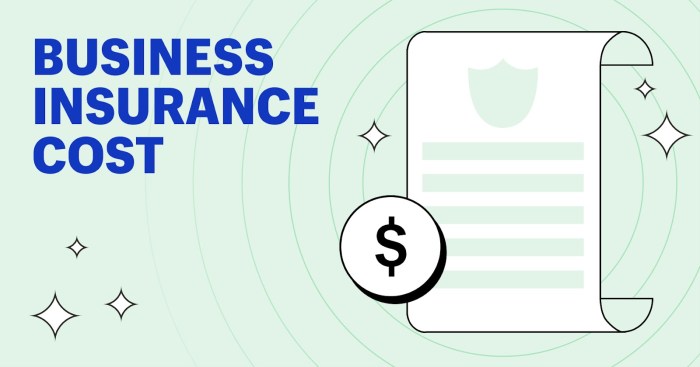Crafting Affordable Small Business Insurance That Doesnt Compromise

Exploring the realm of affordable small business insurance that prioritizes quality over cost, this introduction sets the stage for a comprehensive discussion that will enlighten readers on making informed insurance decisions.
The following paragraph will delve into various aspects and considerations related to this crucial topic.
Introduction to Small Business Insurance

Small business insurance is a type of coverage designed to protect small businesses from financial losses due to unexpected events.
Having insurance for small businesses is crucial as it provides a safety net against various risks that could potentially cripple a business financially. From property damage to liability claims, insurance helps mitigate the impact of unforeseen circumstances.
Importance of Small Business Insurance
- Protection Against Liability: Small business insurance shields owners from legal claims and lawsuits, ensuring that the business can continue to operate even when faced with legal challenges.
- Financial Security: Insurance coverage provides financial support to cover expenses related to property damage, theft, or other unexpected events, preventing a small business from going bankrupt.
- Professional Image: Having insurance can enhance the credibility and professionalism of a small business, instilling trust in customers, employees, and business partners.
Risks of Not Having Small Business Insurance
- Legal Consequences: Without insurance, small businesses are vulnerable to costly legal battles that could result in hefty fines, penalties, or even closure.
- Financial Instability: Lack of insurance leaves small businesses exposed to significant financial losses that can be difficult to recover from, jeopardizing the future of the business.
- Reputation Damage: In the event of a crisis, not having insurance can tarnish the reputation of a small business, leading to a loss of trust among customers and stakeholders.
Factors to Consider When Choosing Cheap Small Business Insurance

When selecting insurance for your small business, it's important to consider various factors to ensure you get the right coverage without breaking the bank.
Type of Business
Different types of businesses have different insurance needs. For example, a retail store may require liability insurance to protect against customer injuries, while a tech startup may need cyber liability coverage to safeguard against data breaches. It's essential to understand the specific risks associated with your industry to choose the appropriate coverage options.
Assessing Specific Needs
Before purchasing a small business insurance policy, it's crucial to assess the specific needs of your business. Consider factors such as the size of your business, the number of employees, the nature of your operations, and any potential risks you may face.
By evaluating these aspects, you can tailor your insurance policy to provide adequate coverage for your unique business needs.
Common Insurance Coverage for Small Businesses
Insurance coverage is crucial for small businesses to protect themselves from unforeseen events that could potentially disrupt operations or lead to financial losses. Here are some common types of insurance coverage available for small businesses:
General Liability Insurance
General liability insurance provides coverage for third-party claims of bodily injury, property damage, or advertising injury. It protects small businesses from legal fees, medical expenses, and settlement costs in case of lawsuits filed against them.
- General liability insurance typically covers bodily injuries sustained by customers or clients on business premises.
- It also covers property damage caused by the business operations, such as accidental damage to a client's property during a service.
- Advertising injury coverage protects against claims of defamation, copyright infringement, or false advertising.
Property Insurance
Property insurance protects small businesses against losses or damages to their physical assets, such as buildings, equipment, inventory, and furniture. It provides coverage for perils like fire, theft, vandalism, or natural disasters.
- Property insurance can help cover the cost of repairing or replacing damaged property due to covered events.
- It also includes coverage for business interruption, which compensates for lost income and operating expenses when a business is unable to operate due to a covered peril.
- Additional coverage options may include coverage for equipment breakdown, spoilage of perishable goods, or valuable papers and records.
Business Interruption Insurance
Business interruption insurance, also known as business income insurance, helps small businesses recover financially from a temporary shutdown due to a covered event. It covers lost revenue, ongoing expenses, and profits that would have been earned during the interruption period.
- Business interruption insurance can help cover payroll expenses, rent or lease payments, and other fixed costs during the downtime.
- It ensures that the business can continue to meet financial obligations and maintain financial stability until normal operations resume.
- This coverage is essential for small businesses that rely heavily on continuous operations to generate income and maintain cash flow.
Tips for Finding Affordable Small Business Insurance
When it comes to finding affordable small business insurance, there are several strategies you can use to get the best coverage at a reasonable cost.
Comparing Quotes from Different Insurance Providers
Before settling on an insurance provider, it is crucial to compare quotes from different companies. This allows you to see the range of prices and coverage options available, helping you make an informed decision.
Bundling Insurance Policies for Cost Savings
Consider bundling your insurance policies with one provider. Insurance companies often offer discounts when you purchase multiple policies from them. This can lead to significant cost savings while still maintaining adequate coverage for your business.
Negotiating with Insurance Companies for the Best Rates
Don't be afraid to negotiate with insurance companies to get the best rates. You can leverage quotes from other providers to see if they are willing to match or beat the price. Additionally, highlighting your business's low-risk factors may also help in negotiating lower premiums.
Ensuring Quality Coverage Without Cutting Corners
When it comes to small business insurance, opting for cheap coverage without ensuring adequate protection can lead to serious consequences. It's crucial to understand the risks associated with choosing low-cost insurance that may not cover all necessary aspects of your business.
Risks of Opting for Cheap Insurance
- Insufficient Coverage: Cheap insurance policies may not provide enough coverage for all potential risks your business faces.
- High Deductibles: Some affordable policies come with high deductibles, making it challenging to afford in case of a claim.
- Limited Scope: Cheap insurance might have limited coverage options, leaving your business vulnerable to various threats.
Common Pitfalls to Avoid
- Ignoring Coverage Limits: Make sure to understand the limits of your policy to avoid being underinsured.
- Choosing Based Solely on Price: While cost is important, prioritize coverage that meets your business's specific needs.
- Not Reviewing Policy Exclusions: Failure to understand what isn't covered can lead to gaps in protection.
Importance of Reading the Fine Print
- Policy Exclusions: Take time to carefully read and understand the fine print to avoid surprises when filing a claim.
- Clarify Ambiguous Terms: Seek clarification on any unclear terms or conditions in the policy to prevent misunderstandings.
Tips for Ensuring Adequate Coverage
- Assess Your Business Needs: Identify the specific risks your business faces to tailor insurance coverage accordingly.
- Work with an Agent: Consult with an insurance agent to help you navigate the complexities of insurance policies and find the right coverage.
- Review Regularly: Periodically review your insurance policy to ensure it still aligns with your business's needs as it grows and evolves.
Closing Notes
In conclusion, navigating the landscape of small business insurance without compromising on coverage is essential for the long-term success and security of any business. This summary encapsulates the key points discussed, urging readers to prioritize quality over affordability in their insurance choices.
Questions Often Asked
What factors should small business owners consider when choosing affordable insurance?
Small business owners should consider factors such as coverage limits, deductibles, industry-specific risks, and the reputation of the insurance provider to ensure they get adequate protection without overspending.
How can bundling insurance policies help in saving costs?
Bundling insurance policies from the same provider often results in discounts or reduced premiums, offering cost savings for small businesses without compromising on coverage.
Why is it crucial to read and understand the policy exclusions in insurance contracts?
Understanding policy exclusions helps small business owners know what is not covered by their insurance, preventing surprises during claims and ensuring they can address any gaps in coverage proactively.

